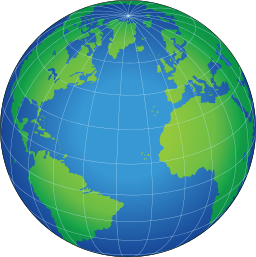Religious Festivals of the World
 We are approaching christmas, one of christianity’s most important festivals. But what are the most important festivals for other religions?
We are approaching christmas, one of christianity’s most important festivals. But what are the most important festivals for other religions?
Britain today is a multicultural society. Being a Christian myself, I am aware of its festivals. Some are celebrated nationally and declared bank holidays. However, other religions have their own holy days and we should be aware of them – even if they are not nationally recognized.
As there are so many religions, I will look at those most common in our society today, explaining their main festival(s). All monotheistic faiths are based on a lunar calendar meaning that the festivals are not fixed to a specific date, such as our Easter.
Judaism. Approximately 270,100 people in the UK said that their religious identity was Jewish. The main festivals are Passover, Rosh Hashanah, Yom Kippur and Hanukka.
Passover (Pesach in Hebrew) is celebrated to commemorate the liberation of the Hebrews who were led out of Egypt by Moses.
Rosh Hashanah is the Jewish New Year festival and commemorates the creation of the world.
This festival marks the Jewish New Year and begins with ten days of repentance and self examination, during which time God sits in judgement on every person.
Yom Kippur, the most sacred and solemn day of the Jewish year, brings the Days of Repentance to a close.
Hanukka celebrates the miraculous victory over religious persecution in the Holy Land and also commemorates the re-dedication of the Second Temple in Jerusalem and the miracle of the burning oil. The oil of the menorah (the candelabrum in the temple) miraculously burned for eight days, even though there was only enough oil for one day.
Islam. There are around 2 million Muslims in Britain. The two main festivals are the two Eidhs, sometimes called little and big Eidh. The first one marks the end of Hajj, the second the end of Ramadan.
Eid-Ul-Adha is the celebration of sacrifice and marks the end of Hajj, the annual pilgrimage to Mecca. It takes place on the 10th day of Dhul-Hijjah, the last month of the Islamic calendar. It marks a day of happiness and a day to forgive and forget any differences.
During Ramadan, Muslims celebrate the time when the verses of the Qur’an were revealed to the Prophet Muhammad. It is a time of worship and contemplation; a time to strengthen family and community ties. Ramadan concludes with the celebration of Eid al-Fitr.
Sikhism. The 2001 census recorded 336,000 Sikhs living in the UK. Sikhs celebrate Baisakhi which falls somewhere in March/April and celebrates New Year’s Day in the Punjab. It is the most important festival celebrated.
Hinduism. In 2001 there were about 559,000 Hindus in the UK, most of whom came originally from Gujurat and Punjab. The main festival is Diwali, the festival of lights, which marks the New Year. Diwali is also celebrated in Sikhism.
Buddhism. There are approximately 150,000 active Buddhists in the UK. This number is increasing all the time. The main Buddhist festival of the year is Wesak or Vaisakha, the celebration of the Buddha’s birth, enlightenment and death. The festival is a celebration of much colour. Homes are decorated and lanterns are made of paper or wood. Buddhists also visit their local temples for services and teachings, and give offerings to monks.
Most religions celebrate festivals based on their founder, prophets or New Year. Whilst names and dates differ, the beliefs behind these festivals are similar.
Sources used:
www.bbc.co.uk/schools/religion
http://resources.woodlands-junior.kent.sch.uk/homework/religion
http://en.wikipedia.org/wiki/Jewish_holidays
http://www.religionfacts.com/judaism/holidays.htm